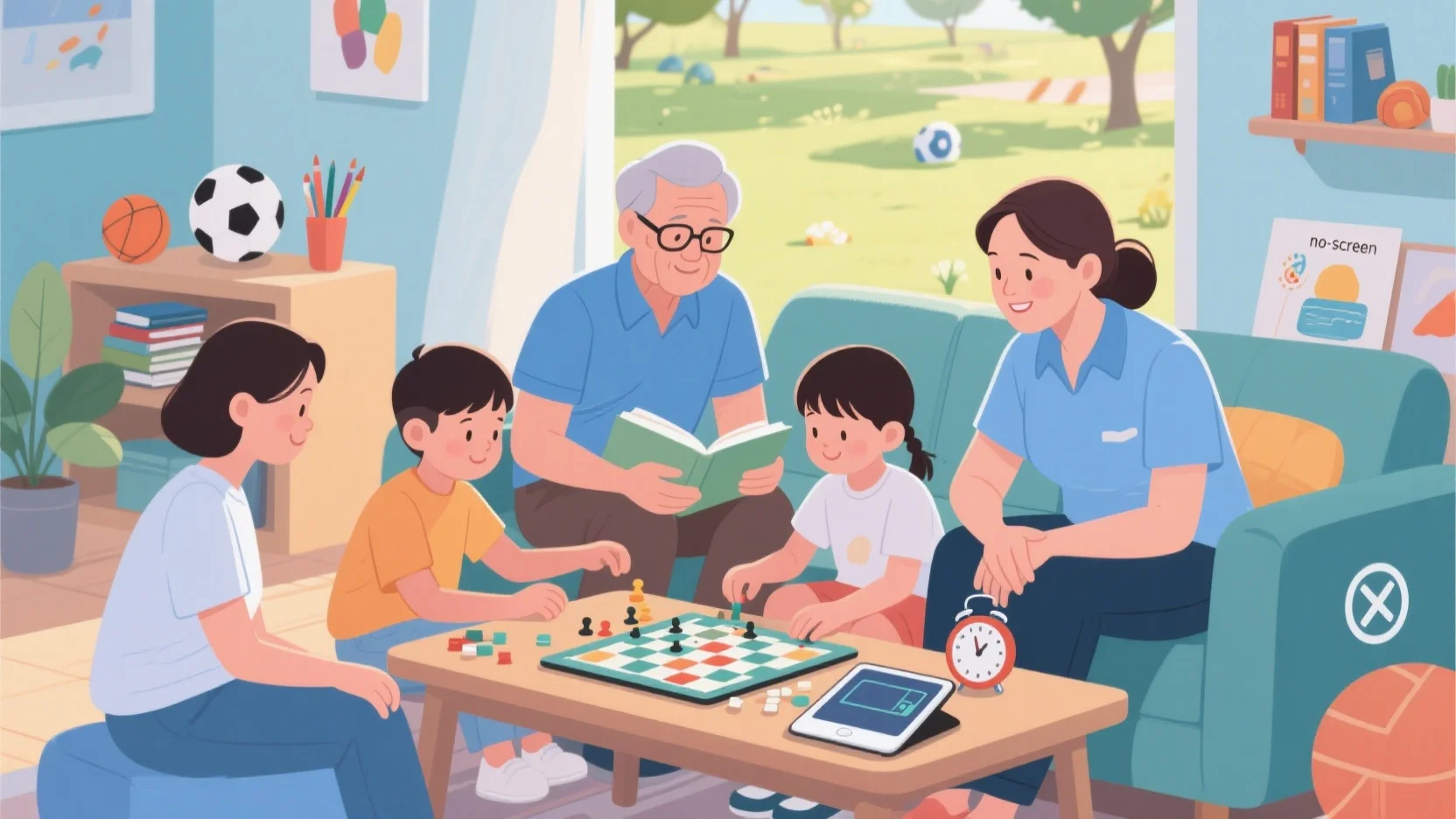1. Plan Screen Time in Advance (Most Effective Strategy)
Suggested visual: Child checking a family schedule
- Validate feelings: “I know stopping your game isn’t fun”
- Set clear rules:
✓ Complete homework/chores first
✓ Then earn 30 minutes of screen time - Protect sleep: “No screens 1 hour before bedtime”
2. Be Consistent with Rules
Suggested visual: Family playing outdoors together
- Offer engaging alternatives:
✓ 30 minutes daily reading
✓ 1 hour outdoor play
✓ Creative arts/crafts
✓ Social time with friends - Core principle: “Technology is a tool, not a babysitter”
3. Model Healthy Habits
Suggested visual: Phones in a “resting station” during meals
- Lead by example:
• Phone-free meals
• Present during quality time - Collaborative approach: “Let’s follow these rules together”
4. Allow Flexible Exceptions
Suggested visual: Family road trip using navigation
- Special circumstances:
✓ Extra 30 minutes on weekends
✓ Modified rules during travel
✓ Clear return-to-normal timeline - Reward system:
“Earn extra weekend screen time by completing weekly reading goals”
Expert Recommendations:
• Maximum 2 hours daily screen time for ages 6-12
• Implement “screen-free Sundays”
• Teach kids to set their own timers








